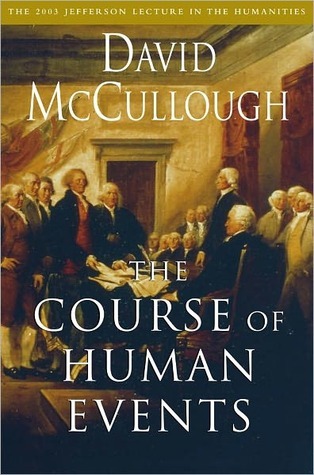More on this book
Community
Kindle Notes & Highlights
It was not the decree of a king or a sultan or emperor or czar, or something enacted by a far-distant parliament. It was a declaration of political faith and brave intent freely arrived at by an American congress. And that was something entirely new under the sun. And
biblical sense, under one’s own “vine and fig tree.” But what did they, the Founders, mean by the expression “pursuit of happiness”?
oneself. Jefferson defined happiness as “tranquility and occupation.” For Jefferson, as we know, occupation meant mainly his intellectual pursuits.
For Washington, happiness derived both from learning and employing the benefits of learning to further the welfare of others.
must study politics and war [he wrote] that my sons may have liberty to study mathematics and philosophy. My sons ought to study mathematics and philosophy, geography, natural history, naval architecture, navigation, commerce, and agriculture in order to give their children a right to study paintings, poetry, music, architecture, statuary, tapestry, and porcelain.
miracle of education.
He knew such wonders of the heavens to be the gifts of God, he wrote, but greatest of all was the gift of an inquiring mind.
But all the provisions that He has [made] for the gratification of our senses . . . are much inferior to the provision, the wonderful provision, that He has made for the gratification of our nobler powers of intelligence and reason. He has given us reason to find out the truth, and the real design and true end of our existence.
Wisdom and knowledge, as well as virtue, diffused generally among the body of the people being necessary for the preservation of their rights and liberties. [Which is to say that there must be wisdom, knowledge, and virtue or all aspirations for the good society will come to nothing.]
And as these depend on spreading the opportunities and advantages of education in various parts of the country, and among the different orders of the people [that is, everyone], it shall be the duty [not something they might consider, but the duty] of legislatures and magistrates in all future periods of this commonwealth to cherish the interests and literature and the sciences, and all seminaries of them . . . public schools, and grammar schools in the towns.
“I must judge for myself, but how can I judge, how can any man judge, unless his mind has been opened and enlarged by reading.”
Faithfulness to the truth of history involves far more than a research, however patient and scrupulous, into special facts. Such facts may be detailed with the most minute exactness, and yet the narrative, taken as a whole, may be unmeaning or untrue. The narrator must seek to imbue himself with the life and spirit of the time. He must study events in their bearings near and remote; in the character, habits, and manners of those who took part in them. He must himself be, as it were, a sharer or spectator of the action he describes.
HISTORY IS—or should be—a lesson in appreciation. History helps us keep a sense of proportion. History teaches that there is no such thing as a self-made man or woman, that we are all shaped by the influences of others, including so many we’ve never seen because they are back there in history. History teaches that nothing happens in isolation, or without cause and effect, and that nothing ever had to happen as it did.
For a free, self-governing people, something more than a vague familiarity with history is essential, if we are to hold on to and sustain our freedom.
they knew their own great achievements to be imperfect and incomplete.


